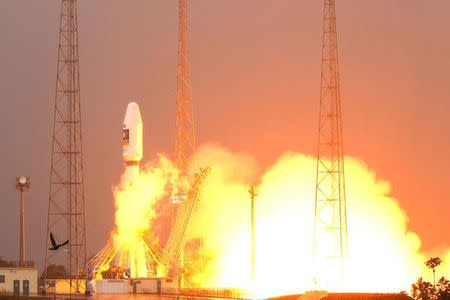Britain raises concerns with French over EU's satellite system snub

LONDON (Reuters) - Britain's foreign minister Boris Johnson said on Monday he had raised concerns with his French counterpart over the European Commission's decision to exclude the country from a new satellite navigation system.
Britain is considering setting up a satellite navigation system to rival the European Union's Galileo project amid a row over attempts to restrict Britain's access to sensitive security information after Brexit.
The European Commission has started to exclude Britain and its companies from sensitive future work on Galileo ahead of the country's exit from the EU in a year's time.
"I mentioned our slight puzzlement about what had happened with the commission's decision on Galileo and the satellite," Johnson said. "But our determination, nonetheless, (is) to go ahead with a UK satellite if that proved to be necessary."
A rival satellite navigation system would cost about 3 billion pounds ($4 billion), one expert said last week.
Asked about the issue on Monday, a French presidential adviser said there was no decision from the EU to exclude Britain from Galileo, and that the current "uncertainty" was simply the direct result of Britain's decision to leave.
"It's simple: Britain is part of Galileo today as an EU member, but won't be automatically part of Galileo tomorrow as a third-party state," he said. "That's the mechanical, legal consequence of Brexit."
The adviser said the issue could only be settled as part of the EU's post-Brexit security agreement with Britain.
"In principle, the EU and France in particular have no intention of keeping Britain away or outside Galileo after Brexit, quite the contrary," he said. "But there are ways and means in terms of access, questions in terms of security data, it's complicated."
(Reporting by Andrew MacAskill in London and Michel Rose in Paris; Editing by Michael Holden and Mark Potter)

